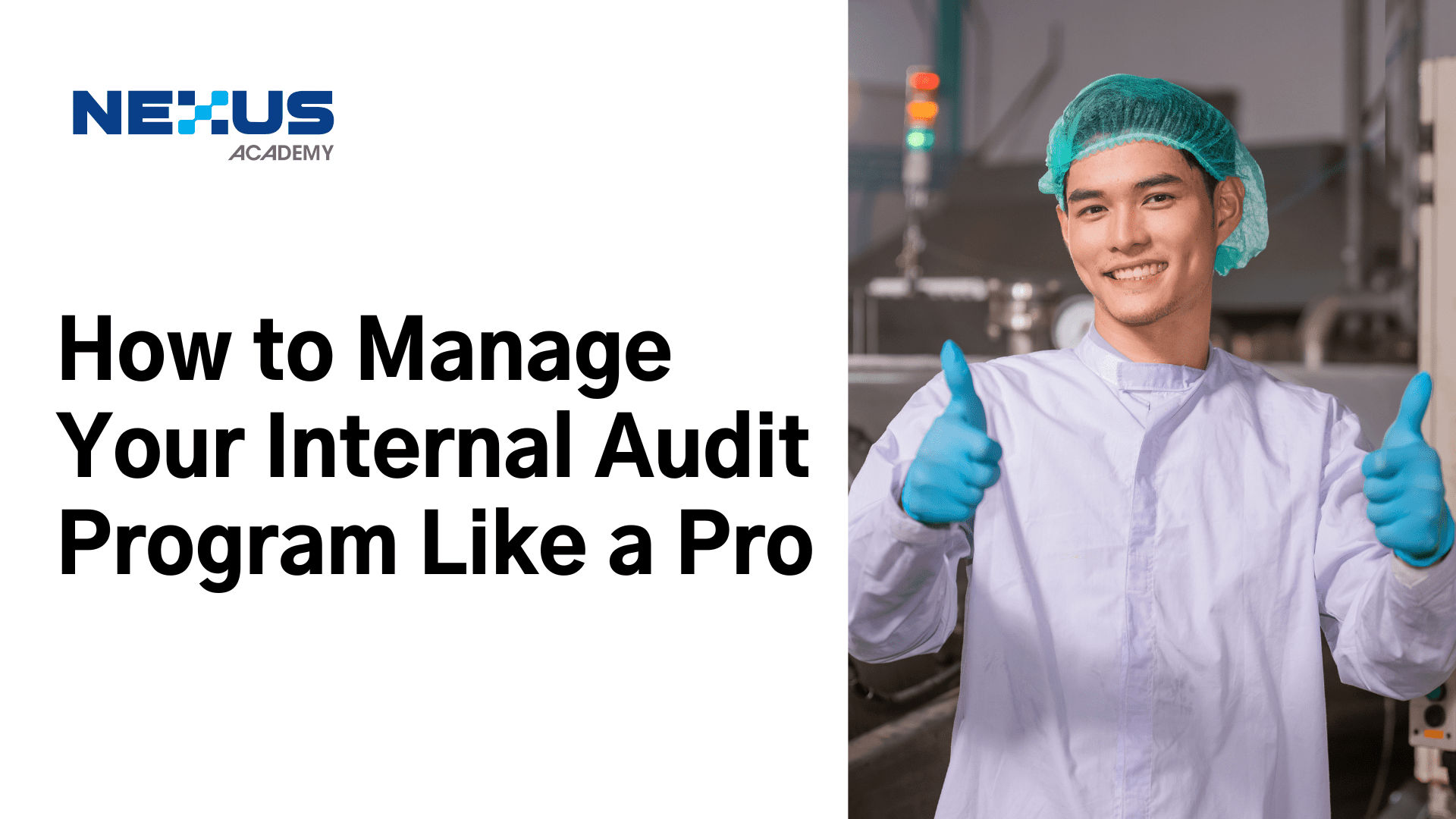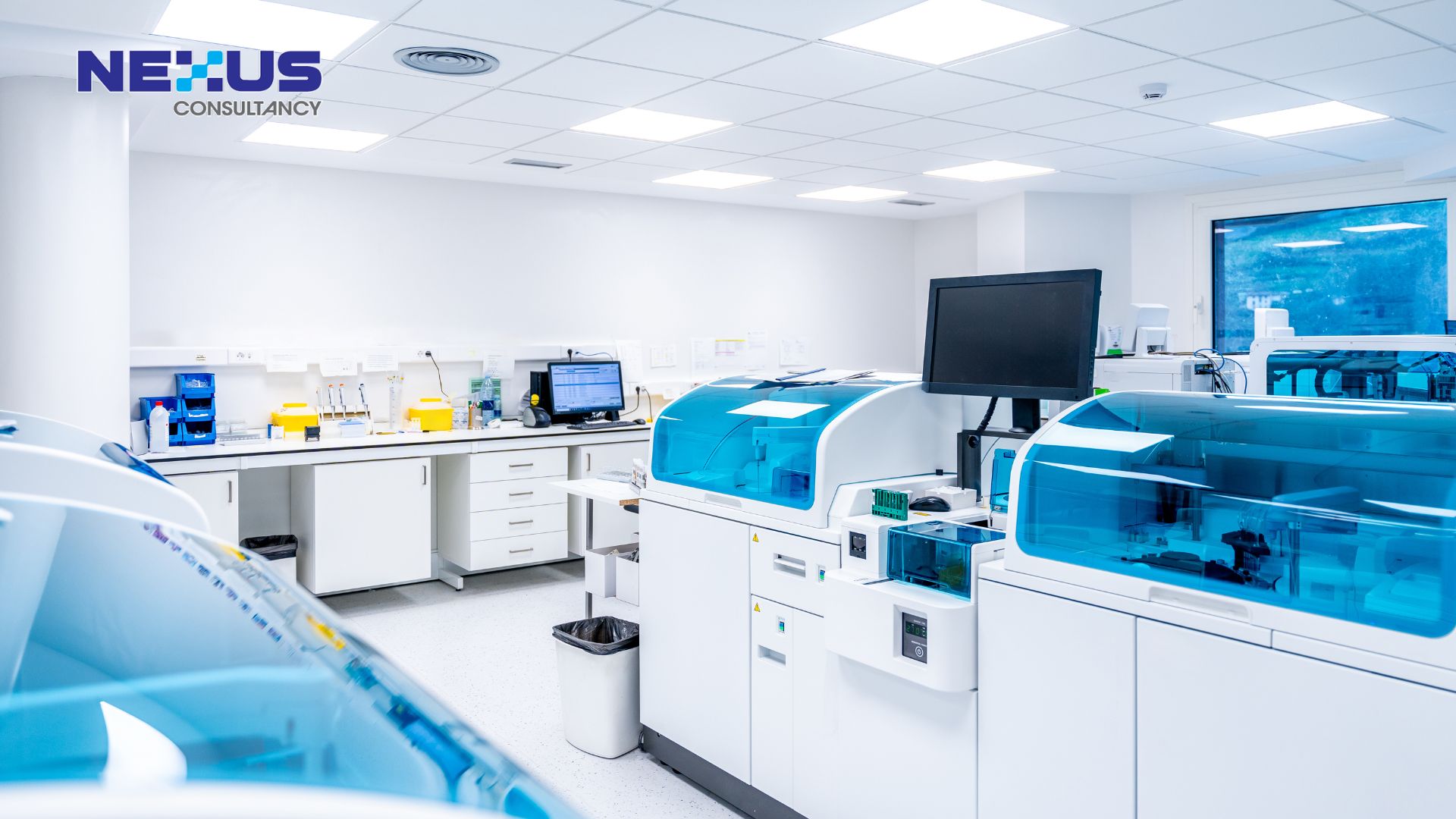
Danielle Tan
Chief Operating Officer
Internal audits involve a comprehensive review of all aspects of the management system, from documents and policies to practices followed in the company.

We all love to indulge in our favorite foods, but have you ever wondered how the food you consume is safe for you?
That’s where Food Safety Management Systems come in handy. Food Safety Management System is a set of procedures, policies, and practices that ensure that the food products we consume are safe for us. But, how do we ensure that the Food Safety Management System is effective and doing its job well?
That’s where internal audits come in. Internal audits are like a food safety detective agency that checks if the Food Safety Management System is doing its job well.
The Standards
| FSSC 22000 version 5.1 ISO 22000:2018 |
8.8.1 Verification (ISO 22000) |
|---|---|
| 9.2 Internal Audit (ISO 22000) | |
| 2.5.12 Site Inspections (FSSC 22000) | |
| CODEX HACCP 2020 | 3.11.2 Verification Procedures |
| MS 1480:2019 | 6.3.7.4 Internal Audit |
| BRCGS Food Safety Issue 9 | 3.2.1 Records |
| 3.4.1 Internal Audit Program | |
| 3.4.2 Training and Independence | |
| 3.4.4 Documented Inspections | |
| 7.2.1 Personal Hygiene |
What is an Internal Audit in a Food Safety Management System?
The internal audit process involves reviewing all aspects of the Food Safety Management System, from the documents, policies, procedures to the practices followed in the company. The auditor conducts interviews with employees, observes processes and practices, and collects data to assess the effectiveness of the Food Safety Management System.
The internal audit process is typically conducted by a trained internal auditor or a team of auditors who are independent of the areas being audited. The internal audit process involves the following steps:
#1. Planning: The internal auditor identifies the scope and objectives of the audit, as well as the areas to be audited.
#2. Document review: The auditor reviews relevant documents, including policies, procedures, records, and other relevant information.
#3. Fieldwork: The auditor conducts interviews with employees, observes processes and practices, and collects data to assess the effectiveness of the Food Safety Management System.
#4. Reporting: The auditor prepares a report that summarizes the findings of the audit, identifies areas of non-compliance or weaknesses in the Food Safety Management System, and makes recommendations for improvement.
#5. Follow-up: The company takes corrective action to address any non-conformances identified during the audit, and the internal auditor verifies that the corrective action has been implemented and is effective.

Why Do We Need Internal Audits?
- Make sure it follows the rules of the system: Well, for starters, internal audits ensure that the company’s Food Safety Management System is compliant with regulatory requirements and industry standards.
- Do better and better: Additionally, they identify areas where the company’s Food Safety Management System can be improved to enhance food safety and prevent potential risks.
- Trust is Key: By conducting internal audits, companies can improve their food safety management practices, which can lead to a reduction in foodborne illness outbreaks and other food safety incidents. This, in turn, can enhance customer confidence and trust in their products.
Skill Sets of Internal Auditors
The skill sets required of a Food Safety Management System internal auditor can vary depending on the specific type of audit they are conducting and the organization they are working for. However, some common skills that are essential for an effective internal auditor include:
- Knowledge of relevant standards and regulations: A good auditor must have a thorough understanding of the standards and regulations related to the management system they are auditing.
- Attention to detail: An auditor must be able to identify potential issues and risks in the management system they are auditing and be able to provide recommendations for improvement.
- Communication skills: An auditor must be able to communicate effectively with both internal stakeholders and external auditors. This includes being able to write clear and concise reports and communicate findings to management.
- Analytical and critical thinking: An auditor must be able to analyze data and information to identify trends and patterns, as well as be able to critically evaluate the effectiveness of the management system being audited.
- Time management: An auditor must be able to manage their time effectively to ensure that audits are conducted efficiently and within the allotted time frame.
- Interpersonal skills: An auditor must be able to work collaboratively with other auditors and stakeholders to ensure that the audit is conducted effectively.

Want to Sharpen Your Skills as an Internal Auditor?
Training your internal auditors is super important when it comes to maintaining your Food Safety Management System. Not only does it help them learn the ins and outs of conducting effective audits, but it also helps ensure that your organization is following all the rules and regulations.
Training your auditors helps keep them in the loop on the latest industry practices and techniques, so they can identify potential issues and take action to fix them. This enables them to perform value-added internal audits and focus on what really matters in your Food Safety Management System.
We recommend the following training courses:
MS 1480:2019 HACCP FSMS Internal Audit Training 16-17 May 2023, 8-9 Aug 2023, 28-29 Nov 2023
FSSC 22000 V5.1 Internal Audit Training 23-24 May 2023, 22-23 Jul 2023
ISO 22000 FSMS Internal Audit Training 13-14 Jun 2023, 19-20 Sep 2023, 21-22 Nov 2023
ISO 9001:2015 QMS Internal Audit Training 26-27 Jun 2023, 26-27 Sep 2023, 5-6 Dec 2023
ISO 14001:2015 EMS Internal Audit Training 15-16 Aug 2023, 7-8 Dec 2023
ISO 45001:2018 OHSMS Internal Audit Training 12-13 Sep 2023, 12-13 Dec 2023






